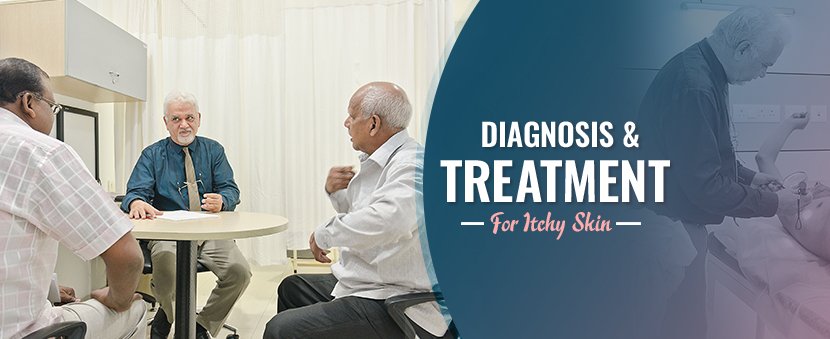For temporary relief of itching, one may try these self-care measures:
- Avoid items or situations that cause you to itch.
- Perhaps the most important self care is to avoid scratching whenever possible.
- Moisturize daily.
- Use creams, lotions or gels that soothe and cool the skin with wet compresses.
- Use moisturising soap without dyes or perfume.
- Take a lukewarm water bath or shower.
- Stay hydrated with at least 3-4 litres of water everyday.
- Reduce stress.
- Try over-the-counter allergy medicine.
- Use a humidifier.
Short-term use of non prescription corticosteroid cream may temporarily relieve an itch accompanied by red, inflamed skin. Long term relief requires identifying and treating the cause of itching.
When to consult your skin doctor
- If dry, itchy skin doesn’t get better within 2 weeks.
- If its severe and affects your routine and disturbs sleep
- If it affects your whole body
- If it is accompanied by other symptoms like fever, change in urinary or bowel habits, tiredness and weight loss.
Diagnosis
Tracking down the cause of your itch can take time and involve a consult with a dermatologist with physical examination and questions about ones medical history. If the doctor thinks your itchy skin is the result of a medical condition, you might have tests, including:
Blood test. A complete blood count can provide evidence of an internal condition causing your itch, such as iron deficiency.
Tests of thyroid, liver and kidney function. Chest X-rays. A chest X-ray can show if you have enlarged lymph nodes, which can go along with diagnosis of blood cancers.
Treatment
Itchy skin treatment focuses on finding the cause of the itch and removing it. If home remedies don’t ease the itchy skin, your doctor may recommend prescription medications or other treatments. Topical options include: Moisturising creams, emollients, corticosteroid creams. Other treatments that may be recommended to your skin include calcineurin inhibitors, such as tacrolimus and pimecrolimus. Or you may find some relief with topical anesthetics, capsaicin and doxepin.
Oral medications include antihistaminic and steroids. Antidepressants called selective serotonin reuptake inhibitors, such as fluoxetine and sertraline may be helpful in easing some types of chronic itch. Antidepressants, Anticonvulsants, immunosuppressants and biologic agents are used in certain cases.
Light therapy (phototherapy). Phototherapy involves exposing your skin to a specific type of light. Multiple sessions are usually scheduled until the itching is under control.
Written by Dr. Jawahar Mansukhani.
For more details click here – This will go to Dermatology Department.


